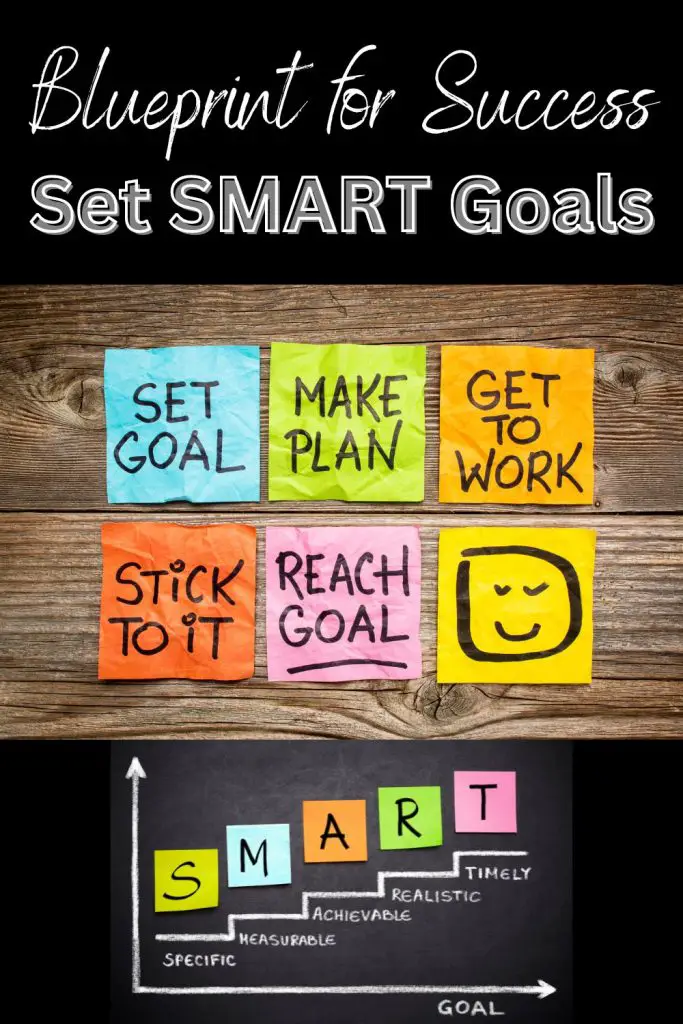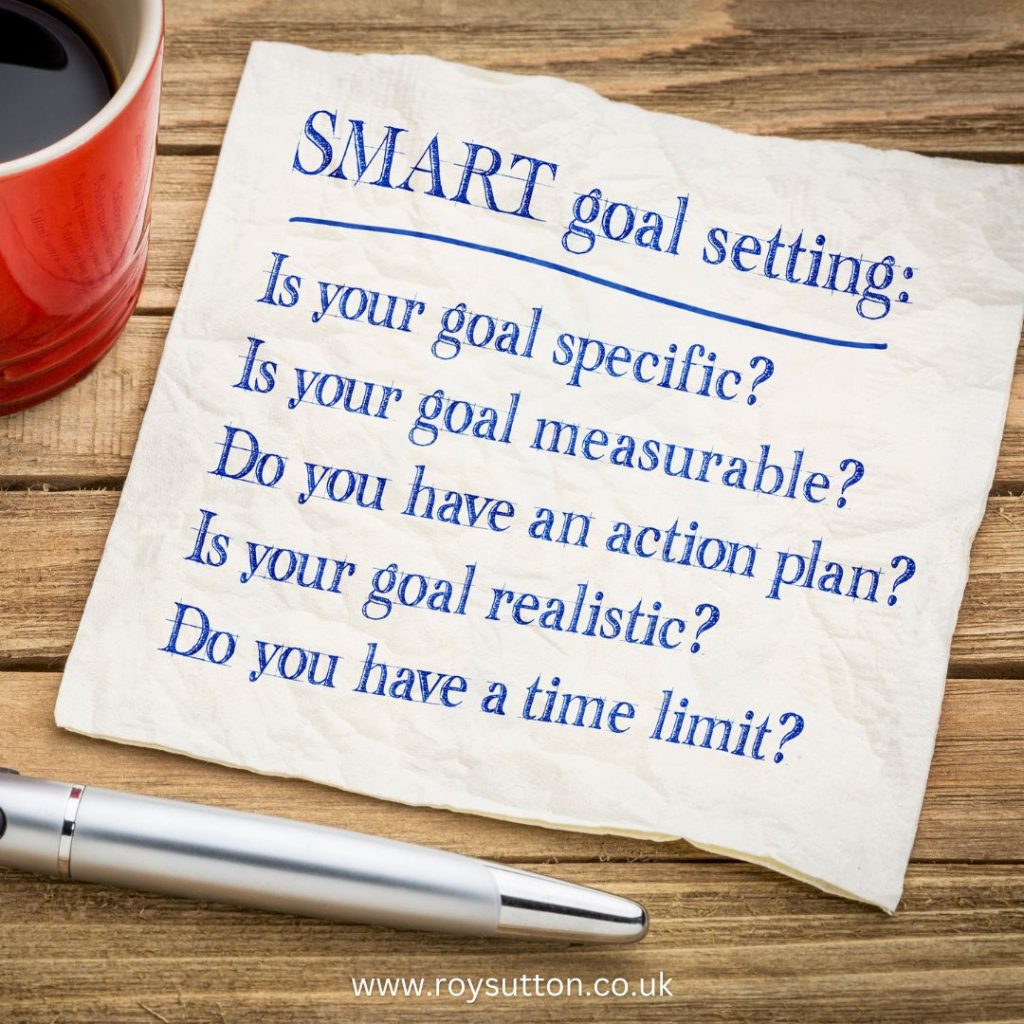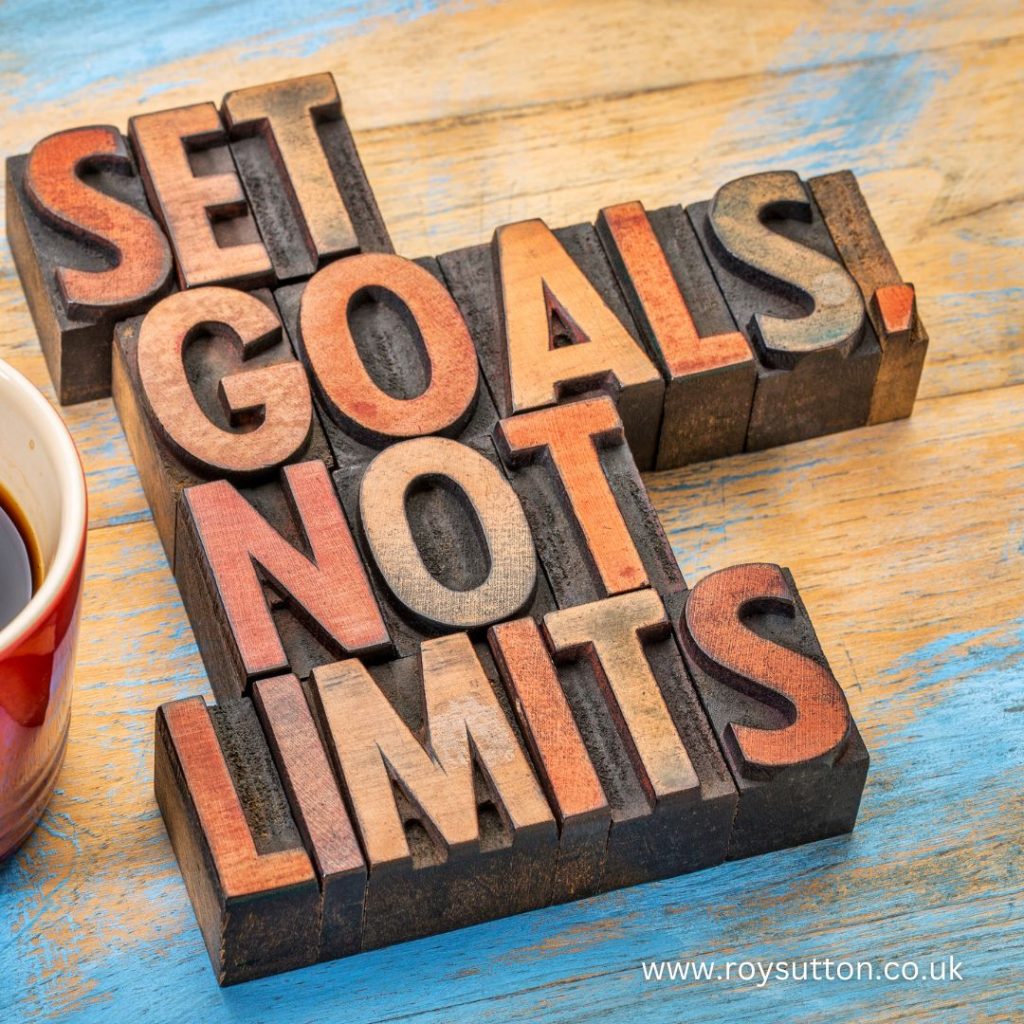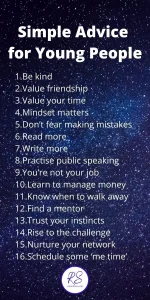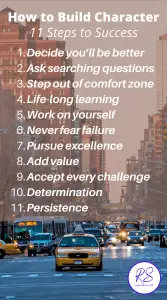
Setting goals is key to success, but not all goals are made equal.
SMART goals are specific, measurable, achievable, relevant, and time-bound objectives that can help you reach your targets more effectively.
This approach to goal-setting gives you a clear roadmap and helps you stay focused on what matters most.
SMART goals work for both personal and professional growth. They push you to think deeply about what you want to achieve and how you’ll get there. By breaking down big dreams into smaller, doable steps, SMART goals make your aims feel less daunting and more within reach.
Using the SMART method can boost your chances of meeting your goals. It helps you track your progress, stay motivated, and make adjustments as needed. Whether you’re aiming to improve your skills at work or make positive changes in your life, SMART goals can guide you to success.
Key Takeaways
- SMART goals provide a clear, structured way to set and achieve objectives
- The SMART method applies to both personal and professional goal-setting
- Using SMART goals increases the likelihood of reaching your targets
Understanding SMART Goals
SMART goals provide a clear framework for setting and achieving objectives. They help people and businesses create plans that are easy to follow and measure.
Definition and Origin
SMART is an acronym that stands for Specific, Measurable, Achievable, Realistic, and Timely. This goal-setting method helps create clear and actionable plans.
The SMART criteria were first introduced in the 1980s. Management experts developed this approach to improve goal-setting in organizations.
SMART goals are:
- Specific: Clearly defined and focused
- Measurable: Progress can be tracked
- Achievable: Within reach given available resources
- Realistic: Aligned with broader objectives
- Timely: Have a set deadline or timeframe
Benefits of SMART Goals
SMART goals offer several advantages for individuals and organizations. They provide structure and guidance, making it easier to turn ideas into action.
One key benefit is improved focus. SMART goals help people concentrate on what’s most important. This leads to better use of time and resources.
Another advantage is increased motivation. Clear, achievable goals give people something concrete to work towards. This can boost confidence and drive.
SMART goals also make it easier to track progress. The measurable aspect allows for regular check-ins and adjustments as needed.
Lastly, SMART goals improve communication. They provide a common language for discussing objectives and expectations within teams or organizations.
Specific
Making goals specific is key to success. Clear and detailed objectives help focus efforts and increase the chances of achievement. Let’s explore how to define clear goals and why being specific matters.
Defining Clear Objectives
SMART goals start with being specific. This means stating exactly what you want to achieve. Instead of saying “I want to get fit,” a specific goal would be “I want to run a 5K race in under 30 minutes.”
Specific goals answer these questions:
- What do I want to accomplish?
- Why is this goal important?
- Who is involved?
- Where will it take place?
- Which resources or limits are involved?
By answering these questions, you create a clear picture of your goal. This clarity helps you stay motivated and on track.
Importance of Specificity
Specific goals are powerful tools for success. They remove confusion and provide a clear target to aim for. When a goal is vague, it’s hard to know if you’ve achieved it.
Specific goals also help with planning. They make it easier to break down big tasks into smaller steps. This breakdown allows for better tracking of progress.
Research shows that specific goals lead to better performance. They help people focus their efforts and persist in the face of challenges. Vague goals, on the other hand, can lead to frustration and giving up.
Measurable
Measurable goals allow you to track progress and know when you’ve achieved success. Setting clear metrics and using the right tools helps you stay on track.
Establishing Metrics for Tracking Progress
To make goals measurable, set specific numbers or percentages. For example, “increase sales by 15%” is more measurable than “boost sales.”
Use these types of metrics:
- Quantity: Number of items sold, customers served, etc.
- Quality: Customer satisfaction scores, error rates
- Time: Project completion dates, response times
- Cost: Budget targets, revenue goals
Break big goals into smaller milestones. This makes progress easier to measure along the way. For instance, if aiming to gain 1000 new customers in a year, set monthly targets of about 83 new customers.
Tools for Measurement
Many tools can help track goal progress. Choose ones that fit your goals and work style.
Digital options:
- Spreadsheets for data entry and calculations
- Project management software to monitor tasks and deadlines
- Analytics platforms for website or social media metrics
Physical tools work too:
- Wall charts or calendars to mark milestones
- Notebooks for daily progress notes
- Whiteboards for team goal tracking
Pick tools that make data easy to record and review. Regular check-ins help spot issues early. Daily, weekly, or monthly reviews keep goals on track.
Remember to adjust metrics if needed. As you learn more, you may find better ways to measure success.
Achievable
Setting achievable goals is crucial for success. It involves assessing your capabilities and resources realistically while still pushing yourself to grow.
Setting Realistic Standards
Realistic goals take into account your current skills and situation. Look at your past accomplishments to gauge what you can achieve. Break big goals into smaller steps.
Achievable goals are challenging but possible. They stretch your abilities without being impossible.
Consider your available time, money, and other resources. Be honest about potential obstacles.
Get input from others who know your field or situation. Their perspective can help set realistic benchmarks.
Balancing Ambition and Practicality
Ambitious goals inspire growth, but must be grounded in reality. Aim high while keeping expectations reasonable.
Start with moderately challenging targets. As you gain confidence and skills, gradually increase difficulty.
Review your goals regularly to ensure they remain achievable. Adjust if circumstances change or you encounter unexpected barriers.
Celebrate small wins along the way. This builds momentum and motivation for bigger achievements.
Learn from setbacks. Use them to refine your approach and set more accurate goals in the future.
Relevant
Goals need to matter and align with your broader objectives. The right goals push you forward and connect to your values and vision.
Aligning Goals with Values
Relevant goals match your personal or company mission. They fit with your core values and long-term plans. Think about why each goal matters to you.
Ask yourself: Does this goal help me grow? Will it make a real difference? Does it excite me?
Goals that align with your values are more motivating. You’ll work harder to reach them. They give your efforts more meaning and purpose.
Consider how each goal fits into the bigger picture of your life or work. Make sure it takes you in the direction you want to go.
Ensuring Goal Relevance in Changing Environments
Goals need to stay relevant as things change. What matters today might not matter tomorrow. Review your goals often to make sure they still fit.
Be ready to adjust goals when needed. New information or events might shift your priorities. It’s okay to change course if a goal no longer makes sense.
Keep an eye on trends in your field. Stay flexible and open to new ideas. This helps you set goals that keep you ahead of the curve.
Ask for input from others. They might see things you don’t. Fresh perspectives can help you spot new opportunities and stay relevant.
Time-Bound
SMART goals need a clear timeline for completion. Setting deadlines creates urgency and helps track progress effectively.
Defining a Timeline
Time-bound goals have specific deadlines. This helps people stay focused and motivated. When setting a timeline, consider these factors:
- Project complexity
- Available resources
- Other commitments
Break larger goals into smaller milestones with their own deadlines. This makes progress easier to track.
Use a calendar or project management tool to mark important dates. Regular check-ins help ensure the goal stays on track.
Adapting to Time Constraints
Sometimes, unexpected events can affect a goal’s timeline. It’s important to be flexible and adjust when needed.
If a deadline seems unrealistic, don’t give up. Instead, try these strategies:
- Reassess priorities
- Seek additional resources
- Modify the goal’s scope
Time-bound goals create a sense of urgency. This can boost productivity and motivation. However, be careful not to set overly aggressive deadlines that lead to burnout.
Regular progress reviews help identify if timelines need adjustment. This allows for timely changes to keep the goal achievable and relevant.
Writing SMART Goals
Creating SMART goals helps you set clear, achievable objectives. This method breaks down goals into key components and helps avoid common mistakes.
Formulating Effective Statements
SMART goals are Specific, Measurable, Achievable, Relevant, and Time-bound. To write a SMART goal, start with a clear action verb. Make it specific by answering who, what, where, when, and why.
Include a measurable element, like numbers or percentages. This makes progress trackable. Set an achievable target that challenges you but remains realistic.
Ensure the goal is relevant to your larger objectives. Finally, add a time frame to create urgency and accountability.
Example: “Increase monthly website traffic by 25% within 3 months by publishing 2 blog posts per week and optimizing 5 existing pages for SEO.”
Common Pitfalls to Avoid
Vague language is a major pitfall in goal-setting. Avoid words like “more” or “better” without specific metrics. Don’t set unrealistic goals that lead to frustration.
Forgetting to align goals with broader objectives can waste effort. Make sure each goal supports your overall strategy.
Neglecting to set deadlines often results in procrastination. Always include a clear end date.
Avoid setting too many goals at once. Focus on a few key objectives to maintain motivation and prevent overwhelm.
Lastly, don’t ignore the importance of regular review. Schedule check-ins to assess progress and adjust goals as needed.
Implementing SMART Goals
Putting SMART goals into action requires careful planning and ongoing management. Creating detailed action plans and regularly monitoring progress are key steps to achieving success.
Action Plans and Roadmaps
Developing an action plan is crucial for turning SMART goals into reality. Break down each goal into smaller, actionable steps. These steps should be specific tasks with deadlines.
Create a timeline or roadmap showing when each task needs to be completed. This visual aid helps track progress and keeps everyone aligned.
Assign responsibilities for each task. Clear ownership ensures accountability and prevents important steps from being overlooked.
Include necessary resources in the plan. Identify what tools, skills, or support are needed to accomplish each task.
Monitoring and Adjusting Goals
Regular check-ins are essential to track progress and make adjustments as needed. Set up a schedule for reviewing goals, such as weekly or monthly meetings.
Use measurable metrics to assess advancement. Compare current results to the initial targets set in the SMART goal.
Be prepared to modify goals if circumstances change. Flexibility allows for adapting to new information or unexpected challenges.
Celebrate milestones along the way. Recognizing progress boosts motivation and maintains momentum towards the final goal.
Examples of SMART Goals
SMART goals help people achieve success in various areas of life. These goals are specific, measurable, achievable, relevant, and time-bound. Let’s look at some real-world examples.
Personal Success Stories
Jane set a SMART goal to run a marathon within 6 months. She made a detailed training plan and tracked her progress weekly.
By breaking her goal into smaller milestones, Jane stayed motivated. She gradually increased her running distance and speed.
After 6 months of hard work, Jane completed her first marathon. Her success inspired her to set new fitness goals for the future.
Tom wanted to save money for a house down payment. He set a SMART goal to save $20,000 in 2 years.
Tom created a budget and set up automatic transfers to his savings account. He also found ways to increase his income through side jobs.
By tracking his progress monthly, Tom reached his savings goal on time. This allowed him to buy his first home.
Case Studies in Different Domains
In business, a small startup set a SMART goal to increase website traffic by 50% in 3 months. They focused on creating quality content and optimizing for search engines.
The team monitored their progress weekly using analytics tools. They adjusted their strategy based on the data. After 3 months, they exceeded their goal with a 60% increase in traffic.
In education, a high school set a SMART goal to improve student reading scores by 10% in one academic year. They implemented a new reading program and provided extra support for struggling students.
Teachers tracked student progress monthly. By the end of the year, the school achieved a 12% improvement in reading scores. This success led to setting new academic goals for the following year.
Reviewing and Reflecting on SMART Goals
Taking time to review and reflect on SMART goals is key for growth. This process helps identify what worked well and where improvements can be made. It also provides insights for setting future goals.
Evaluating Goal Achievement
To evaluate SMART goal achievement, start by comparing results to the original targets. Look at the specific metrics set and assess if they were met. For example, if the goal was to increase sales revenue by 10%, check if this number was reached.
Consider these questions:
- Was the goal completed on time?
- Were all parts of the goal achieved?
- What challenges came up during the process?
It’s important to be honest about both successes and setbacks. If a goal wasn’t fully met, try to pinpoint why. This info is valuable for future planning.
Learning from the SMART Goal Process
Reflecting on the goal-setting process itself can lead to better goals in the future. Think about how well each part of the SMART framework worked.
Ask:
- Was the goal specific enough?
- Were the metrics chosen easy to measure?
- Did the goal push you while still being achievable?
- Was the goal relevant to broader aims?
- Did the timeframe make sense?
Use these insights to refine your approach. Maybe you need to set more challenging goals next time. Or perhaps you should break big goals into smaller steps.
Remember, the point is to keep improving. Each SMART goal cycle should make you better at setting and achieving goals.
Frequently Asked Questions
SMART goals help people set clear, achievable targets. They improve planning and boost success rates in various areas of life.
What are the essential components of SMART goals?
SMART stands for Specific, Measurable, Achievable, Relevant, and Time-bound. These five aspects help focus efforts and improve goal-setting.
Specific goals clearly define what needs to be done. Measurable goals allow progress tracking. Achievable goals are realistic and attainable.
Relevant goals align with broader objectives. Time-bound goals have deadlines for completion.
How can one effectively apply the SMART framework in goal-setting for students?
Students can use SMART goals to improve their academic performance. They should start by identifying specific areas for improvement, like raising a grade in math.
Next, they can set measurable targets, such as increasing test scores by 10%. The goal should be achievable based on current performance and available resources.
It must be relevant to their overall education plan. Finally, they should set a deadline, like the end of the semester, to create urgency.
What are some best practices for defining measurable objectives in SMART goals?
Measurable objectives use numbers and data to track progress. One best practice is to choose clear metrics that quantify progress.
For example, “increase sales by 15%” is better than “boost sales.” Another tip is to use existing data as a baseline for improvement.
Setting milestones along the way helps monitor advancement. Regular check-ins ensure the goal stays on track.
How does setting SMART goals improve business planning and outcomes?
SMART goals enhance business planning by providing clear direction. They help companies focus resources on specific objectives.
These goals make it easier to track progress and adjust strategies as needed. Employees understand their roles better when goals are clearly defined.
SMART goals also improve accountability. Teams can celebrate achievements when they reach measurable targets.
Can you provide a clear example of a SMART goal for personal development?
A SMART personal development goal could be: “Read 12 non-fiction books in the next 12 months to expand knowledge in my field.”
This goal is specific (12 books) and measurable (one per month). It’s achievable with consistent effort and relevant to career growth.
The time-bound aspect (12 months) creates a sense of urgency and helps track progress.
What techniques can be used to ensure goals align with the SMART criteria in a work environment?
One technique is to use goal-setting worksheets that prompt employees to address each SMART criterion.
Another approach is to have team discussions to refine goals collectively. This ensures goals are realistic and align with company objectives.
Regular goal reviews help maintain SMART alignment. Adjusting goals as circumstances change keeps them relevant and achievable.

Please share this post with your friends:
Did you find this article interesting and useful?
If so, then please share it on social media with your friends. When you share, everyone wins.
So go on, please share it right now. If you do, I will be ever so grateful, and you’ll be helping a keen blogger reach a wider audience.
Thank you for your support.

Other articles you might find interesting:
- 11 tips for improving quality of life now
- What is life’s most precious resource?
- Daily Habits of Successful People
- How to find the right job for you: Simply Explained
- Self-promotion and why it matters if you want success
- Brian Tracy: Habits of Success
- Why you should make a difference in life
- Why passion is the key to success
- The importance of friends to our lives
- How to deal with criticism in the workplace
- The secret to happiness
Copyright © Mann Island Media Limited 2024. All rights reserved.
